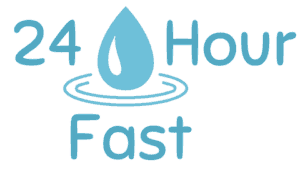Let’s imagine you are in the middle of your fast. You are getting tired of drinking the same glass of water over and over again and craving from something different. Soda? Of course not, you know better than drinking the equivalent of 10 teaspoons of sugar. Diet soda? Well, there isn’t any calorie or sugar in that drink. So are you going to drink it? Does this diet soda break your fast? Let’s dive into this topic and answer that question here.
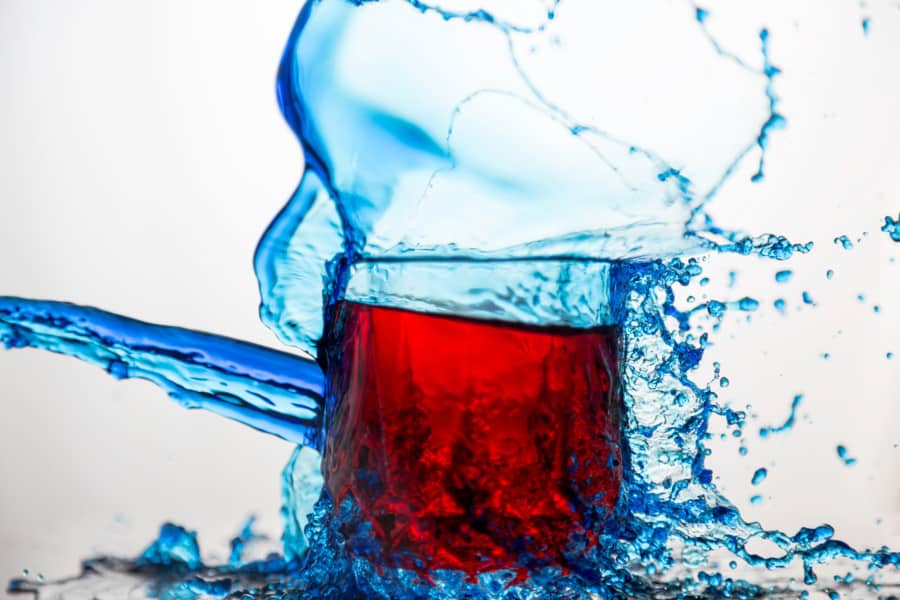
From a calorie standpoint
Diet sodas are the industry’s answer to sugar reduction. They don’t contain typical sweeteners such as high fructose corn syrup or sucrose, but artificial sweeteners instead. Acesulfame potassium and aspartame are two of the most common ones. They are called artificial because – you guessed it – not natural, unlike stevia for example.
Those artificial sweeteners are not metabolized and broken down in a similar way as macronutrients. Our bodies cannot derive energy from them. And that is why they belong to zero-calorie beverages. No energy, no calories.
In that sense, if you focus only on the number of calories ingested to determine whether a fast is broken or not, then diet soda doesn’t break the rule.

But wait a minute, why do we use them then if they don’t provide any energy to our body?
Well, because they taste like sugar. Isn’t it what we all want? The sweet taste of sugar without the sugar itself? Maybe, if calories were the whole story. But let’s not go so fast… As I usually like to repeat: food is not only about calories, food is information. To your body, to your cells, to your genes. And any ingredient present in what you ingest can have a role.
So let’s see if those artificial sweeteners have any other impact and whether they will, yes or no, break your fast.
From an insulin standpoint
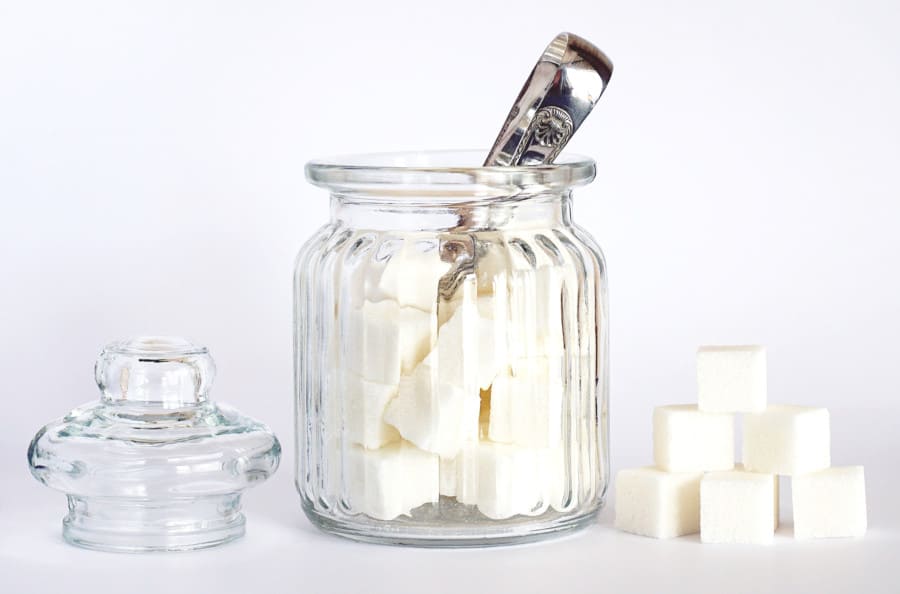
Fasting implies no ingestion of food or drink that will trigger an insulin response. This insulin secretion depends on the type of nutrients ingested, carbohydrates and sugar having the most impact on it. Proteins do trigger insulin response as well to a lower extent, while fats have a much more limited impact.
So since diet sodas don’t contain any real nutrient, they should be fine, right? Well, it’s not that simple actually. Research studying the impact of acesulfame potassium in rats showed that it triggered a higher insulin plasma concentration that lasted for about an hour after the artificial sweetener’s injection.
Another study, done in humans this time, looked at the impact of sucralose, another non-caloric artificial sweetener. It showed that its oral intake led to an insulin response, as well as glycemic response. Not only it triggered insulin secretion, but the plasma blood glucose level also increased significantly.
In summary, from an insulin standpoint, research suggests that yes it will break your fast. You might not be ingesting any calories, but your body still activates insulin secretion in response to that diet soda. And in particular, to the artificial sweetener that it contains.
From a health goal standpoint

Looking at calories and insulin secretion is important as it is intrinsically linked to fasting. But it really all comes down to one point: why are you fasting in the first place? What benefits are you hoping for? And what are your fasting goals?
From there, it becomes easier to know whether diet soda will break your fast or not. It’s just a matter or whether it will negate any benefits you’re looking for from fasting.
Ingredients list
Before going further into the impact of diet soda on your fast, let’s first look at the ingredients list of some of the most common ones (NCS = non-caloric sweeteners):
| Diet coke | Coke zero | Sprite zero | Neste zero | |
| Carbonated water | X | X | X | |
| Filtered water | X | |||
| Aspartame (NCS) | X | X | X | |
| Acesulfame potassium (NCS) | X | X | X | |
| Sucralose (NCS) | X | |||
| Phosphoric acid | X | X | ||
| Citric acid | X | X | ||
| Malic acid | X | |||
| Potassium benzoate | X | X | X | |
| Potassium citrate | X | X | X | |
| Caramel color | X | X | ||
| Natural flavors | X | X | X | X |
| Caffeine | X | X | ||
| Concentrated tea | X |
Now let’s ask ourselves this question: do we know what all those ingredients are? Do they seem like real food or more like a list of chemical ingredients that you would find in a lab? And the million-dollar question: do we want to put that willingly and happily into our body?
I think it’s important to pause for a moment and ask ourselves those tough questions. From there, anyone can make their own decision. But an informed decision is always better than an uneducated guess. So let’s see what the research has to say about the impact of diet soda on the body.
The problems of diet sodas
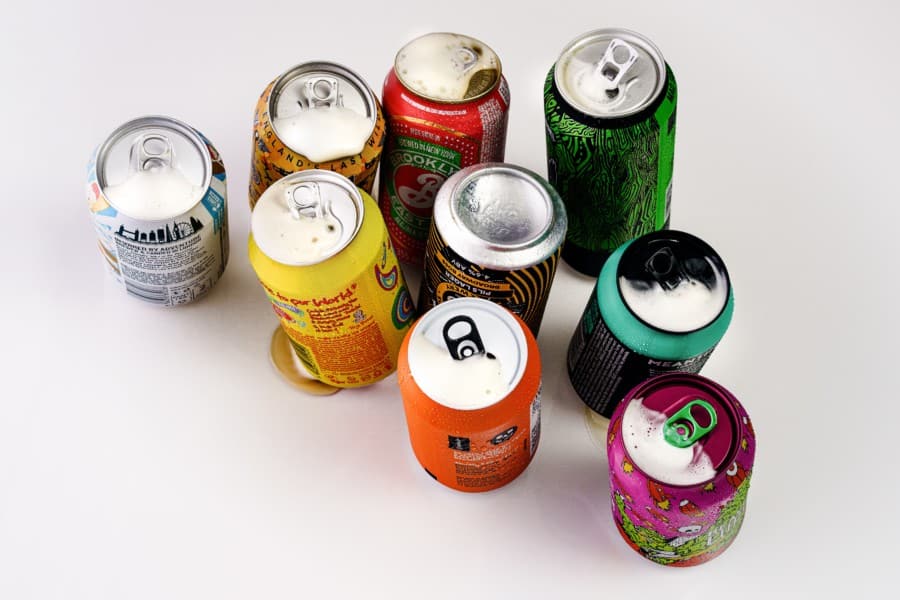
They can affect your gut
Non-caloric artificial sweeteners, present in diet sodas, don’t go unnoticed when it comes to your gut. They can indeed alter the composition and function of the microbiotia.
Not only this impact is significant by itself, but the research also showed that, as a consequence, it can increase the risk of developing glucose intolerance and metabolic syndrome. This study called for a serious reassessment of massive NAS usage in the food and beverage industry.
They may alter many body processes
As we just saw, your body’s metabolism can be impacted by non-caloric artificial sweeteners. But the potential impacts don’t stop there.
Their link with insulin secretion, highlighted earlier, can contribute to fat storage, reversing the state you are when fasting. That is probably not what you want when drinking a zero-calorie beverage.
In addition, while further research is needed, data suggests that regular intake of artificial sweeteners may be associated with cardiometabolic risk and increased BMI.
Lastly, let’s look specifically at the caramel color, added to many soft drinks to turn them brown (among others: coke, pepsi, dr. pepper, artificial root beer, and their non-caloric versions). Caramel color is made by heating carbohydrates. This creates products called AGEs: Advanced Glycation End products. Those products contribute to increased oxidant stress and inflammation, which can lead to diabetes and other cardiovascular diseases.
They can make you fat
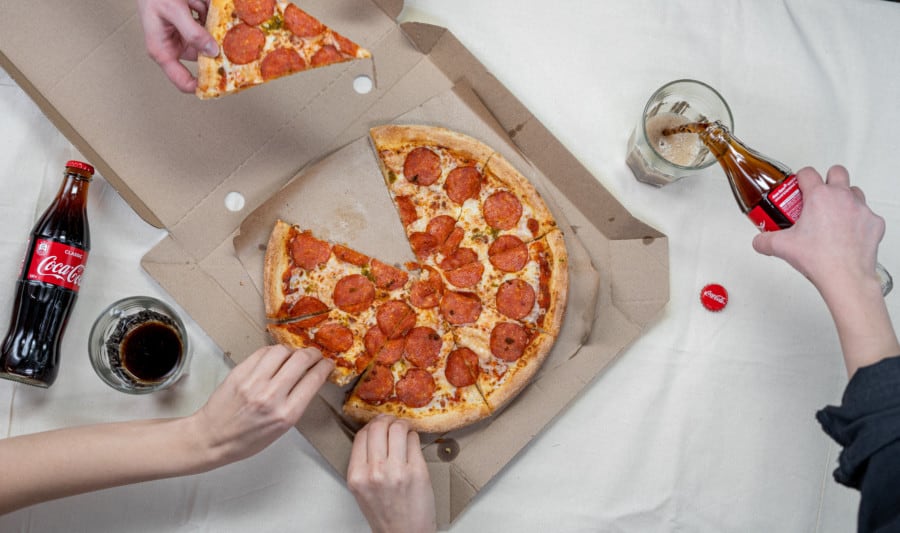
The purpose and at the same time problem of artificial sweeteners is that they taste sweet. Because of that, they maintain cravings for sweet tastes and can keep sugar addiction in place.
And because they provide the sweetness factor but not the energy, it confuses the brain. It senses the taste of sugar without the accompanying calories and tries to correct the imbalance. In the end, this can lead to even more cravings. Recent studies suggest that non-caloric sweeteners, similar to caloric sweeteners, act on brain rewards mechanisms that likely perpetuate their intake.
In summary, diet drinks are not proven to be helpful when it comes to sustained weight loss and they can potentially have the reverse effect.
More research is needed to be conclusive
Additional research is needed to have conclusive and consistent evidence about the exact health outcomes related to the use of non-caloric sweeteners.
One important issue with a lot of studies supporting the use of diet sodas is that they are frequently conducted and funded by the diet drink industry itself. They obviously feature conflict of interest.
This study highlighted this bias in current research and pointed out that further research, free of conflicts of interest, was definitely needed.
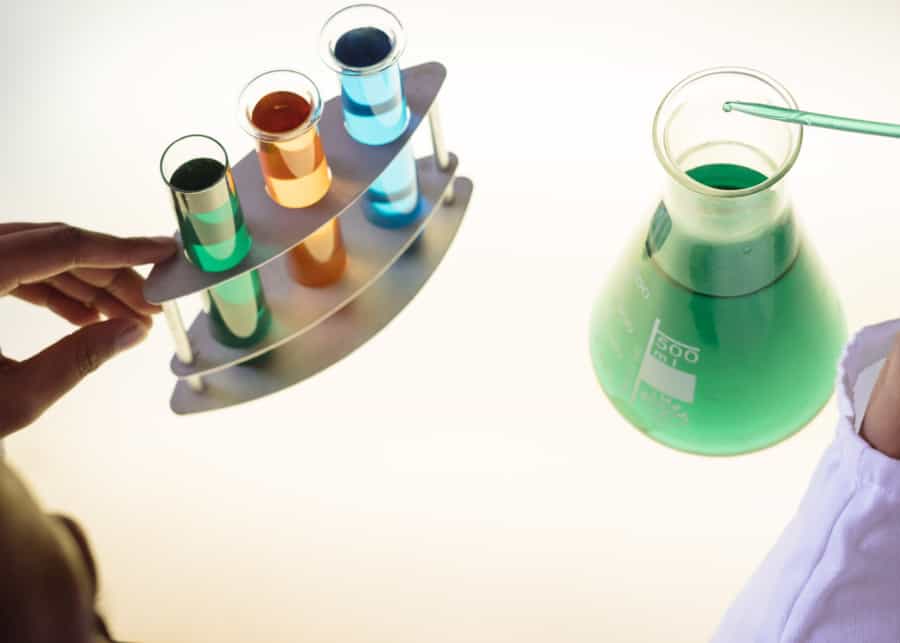
Does diet soda break a fast from a health goal standpoint?
We don’t know whether diet sodas are worse or not than regular ones. But while research is not fully conclusive yet on all the health outcomes due to their consumption, one thing is certain: cutting them out of your daily habits will be beneficial in the long term.
Does that mean cutting them out completely? It’s your choice. In my opinion, quantity and frequency are what matters most. In very limited quantity, one diet soda won’t probably make a huge difference. But when it starts becoming a habit, that’s when we lose control over it.
The above is true whether you are fasting or not. But regarding your fast and health specifically, yes, diet soda will break your fast.
I want to point out that there is no universal rule to answer that question and this is my personal thought. You can fast for a lot of different reasons. But they are all common in the sense that it is meant to improve your health and well-being eventually. And in my opinion, that goal is definitely not in line with a recurrent consumption of diet sodas.
Alternatives to diet soda during a fast

Now that we have more information about the potential impact of diet soda on our fast and our health, let’s see the other alternatives we have when tired of only drinking water during a fast.
The most common drinks when fasting
Nothing original here, but in addition to plain water, coffee and tea are great options. They add some diversity to your drinks and can also be used as appetite suppressants. Indeed, they can induce a sensation of fullness, which can be very helpful when hunger cravings hit.
They both contain caffeine, so make sure you drink a reasonable amount.
But I really want a soda…
Here is a trick: try carbonated water. Really? But we said we were tired of drinking only water.
Well, the bubbly sensation actually makes it closer to a soda drink than plain water itself, and any other drink. Without the calories and without any artificial sweetener.
Give it a try. And if you opt for that drink, make sure it is unsweetened or it will defeat its purpose during a fast.
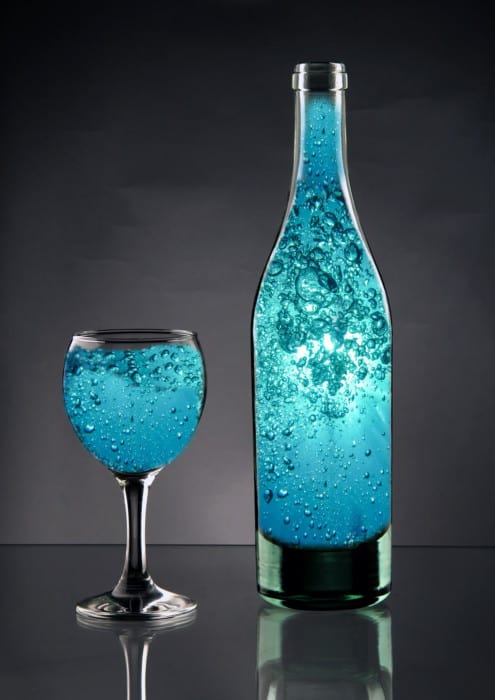
Conclusion
While more research is needed to accurately understand the impact of diet sodas and artificial sweeteners on our health, the research suggests that they are definitely not above suspicion.
Beware of their potential effect on insulin secretion, which would have a negative impact on your fasting state. And think about your overall health goals and why you fast in the first place. It is safe to say that the alternative drinks mentioned above will be much more beneficial for you. In the short term for your fast. And in the long term for your well-being.
Next time you want to reach for that diet soda, read the ingredients list again. Think about your health goals. And make your decision. Freely. But informed.
The information we provide at 24hourfast.com is not intended to replace a consultation with a qualified medical professional. By interacting with this site, you agree to our disclaimer. Read more.
